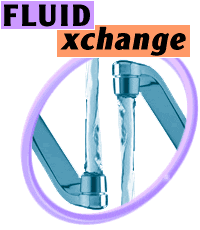Jane Doe, a Montreal mother, believes forcing her two HIV-positive children to take life-saving AIDS drugs is, in fact, a death sentence.
So when she refused to administer drugs such as AZT and Crixivan to her two boys, aged 4 and 8, and tried to leave the country last summer, Quebec’s youth court stripped Doe of her children.
Then, on Jan 12, a youth court judge ordered her children’s caretakers – Doe’s parents – to administer the anti-AIDS HAART treatment to the two boys.
“I tested positive [for HIV] more than 14 years ago and have repeatedly tested positive,” Doe told reporters during a medical conference in Montreal earlier this month. (Her real name was not disclosed in order to protect the identity of her children.)
“But in spite of the death sentence pronounced on me by doctors years ago I have remained healthy by living a healthy lifestyle and taking no drugs whatsoever. Both of my children are also HIV positive and have been healthy since birth until the HIV specialist started treating them.”
That’s why Doe, whose $50,000 worth of legal fees have thus far been paid by the US-based International Coalition For Medical Justice (ICMJ), isn’t giving up: “I think it is the parent’s decision to give or not [give] a treatment. The parent is in the best position to make such a decision, not an overworked social worker, a hospital that profits by selling drugs to its patients, or a doctor whose research is often funded by drug companies. Medicine is behaving as a religion and imposes its dictate on the population through massive propaganda and the law.”
But the days of medical imperialism are over, says law professor Margaret Somerville, founding director of the renowned McGill Centre For Medicine, Ethics And Law.
“It’s true any treatment has downsides,” Somerville explains. “I mean, a lot of people lived [for the longest time] with the illusion that if medicines aren’t going to do any good, they aren’t going to do any harm [either]. But people are much better informed today.”
That said, Somerville believes “when it comes to making decisions for those in your care, custody and control, [the right to make decisions] is not an absolute right and it’s not as broad as the right you’ve got over yourself. So, because these are children and are unable to make up their own minds, the rest of us as a society have a responsibility to those children.
“[Doe] is entitled to [believe the HAART treatment is bad] and apply that belief to herself. But she’s not entitled to apply that absolutely to her children. Just because she believes it first of all does not mean it’s right, and secondly it doesn’t mean she’s got the right to say, ‘That’s the basis upon which I’ll decide what’s right for my children.’ And just because [Doe] believes she is a conscientious mother, which I’m sure she is, also doesn’t mean this decision is in the best interest of her children. It’s not an objective decision, it’s a subjective one.”
Doe’s lawyer Robert Beard counters that “the [Quebec youth court] judge ruled that a parent’s decision to withhold anti-retroviral medication from an HIV-positive child does not justify the intervention of the family court.”
Beard then points out the judge also ruled that replacing traditional Western medical practices with natural and homeopathic alternatives – as Doe has chosen to do – does justify intervention. “Not consenting to traditional medicine makes you a bad parent,” Beard snaps. “No child should be mandated to be a guinea pig for medical research.”
ICMJ executive director Deanne Collie only believes in mandatory treatment if a child’s health is in imminent danger. “In this case, the children are not in any imminent danger and the medication proposed has not proven effective. The dosage for the children is actually taken from an adult dosage… without any trials on children. So we don’t know what the efficacy is for a [child’s] dosage, nor its toxic side-affects.”
But, by all accounts, Doe’s children are not faring as well as their mother health-wise. “I think people without any particular axe to grind have come to a conclusion that we should try to help these kids with medical care as we see it,” Somerville says. “Treatment may have its downsides, but not treating has downsides too.”
Somerville also questions the ICMJ’s financial support of Doe’s case.
“There’s an old saying in medicine which we teach students: when your doctor says to you, ‘Would you like to be a research subject?’ what the patient should say is, ‘Doctor, are you doing this for me or am I doing this for you?’ In other words, I would ask a similar question of [the ICMJ]: Are you doing this for [Jane Doe] or is she a convenient test case for you?”
An exasperated Doe, meanwhile, feels she has been wrongly impugned, and her boys will pay the price for taking the HAART treatment.
“What happened to me can happen to any parent in Canada,” she says. “A single doctor has the power of ruining the life of an entire family by imposing a treatment he judges to be indispensable through the aid of the government. The government has at its disposition unlimited resources against the parent who will be ruined by legal expenses to defend her child. This is medical fascism within a democratic society. Parents who choose alternative medicines should be particularly aware that this alone might justify your children being taken away from you.”


 Why you can trust Xtra
Why you can trust Xtra


